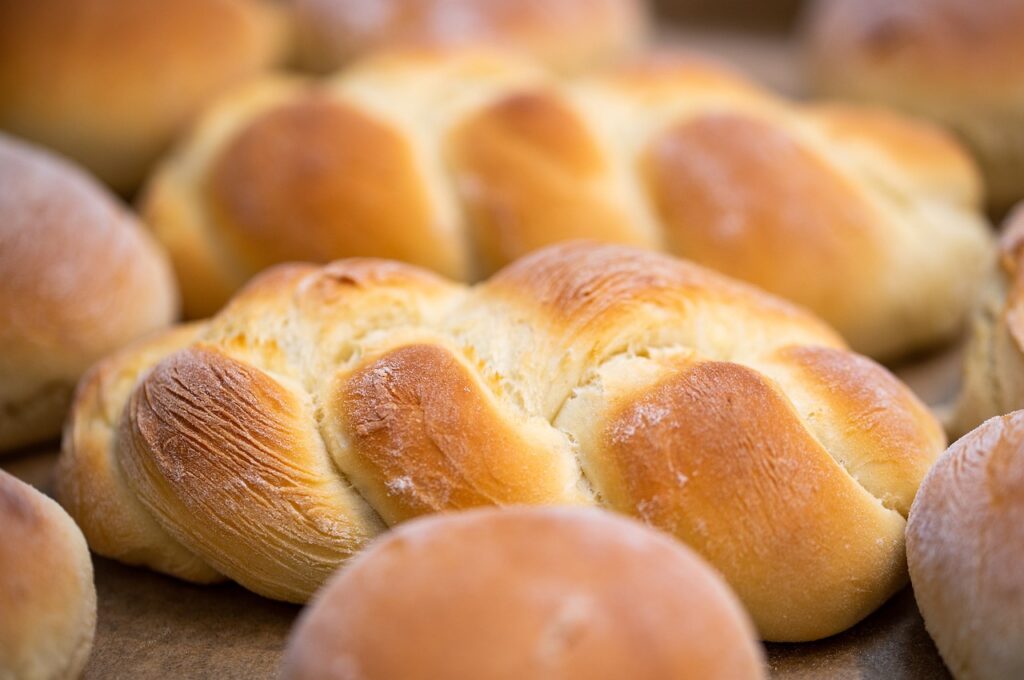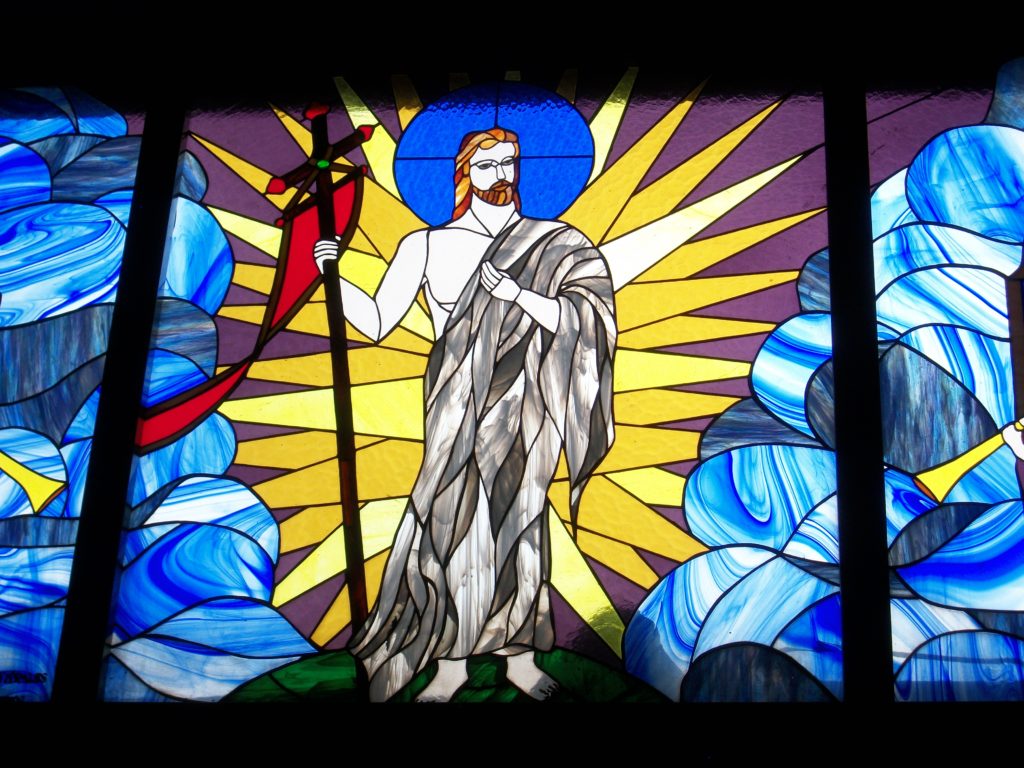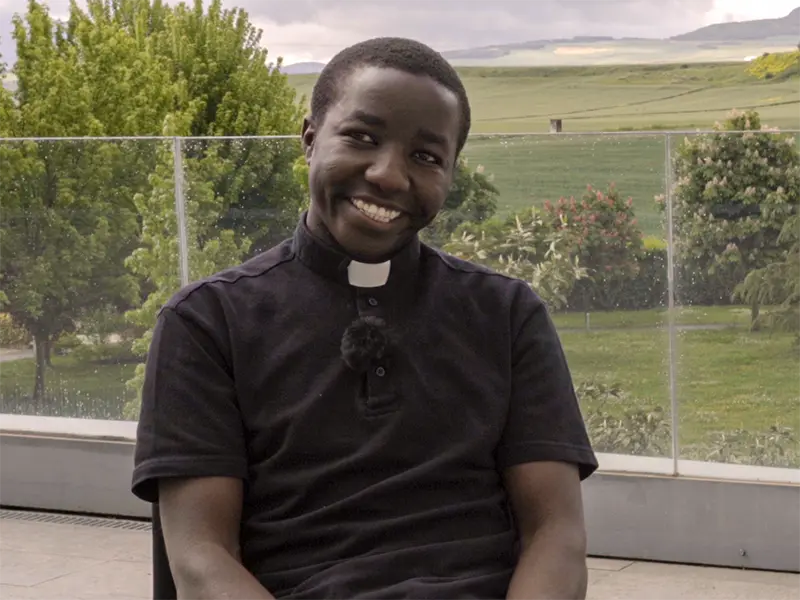Reflection by Monsignor Enrique Díaz: The scandal of bread
XIX Ordinary Sunday

Monsignor Enrique Díaz Díaz shares with the readers of Exaudi his reflection on the Gospel of this Sunday, August 11, 2024, entitled: “The scandal of bread”.
***
I Kings 19, 4-8: “With the strength of that food, he walked to the mountain of God”
Psalm 33: “Try it, and you will see how good the Lord is”
Ephesians 4, 30-5,2: “Live loving like Christ, who loved us and gave himself for us”
Saint John 6, 41-51: “I am the living bread that came down from heaven”
The words of Elijah, feeling weakness and failure, are words repeated ad nauseam by the men of our time: “Take my life, for I am not worth more than my fathers”. But when man recognizes his smallness, the power of God intervenes. With the bread and water, symbols of the ancient exodus, given freely in extreme need, Elijah resumes his journey to the mountain of God. A little bread has given new meaning to his life.
When Christ proclaims: “I am the living bread that came down from heaven,” he arouses much controversy and murmuring among the leaders of the people. He is not what they expect from a Messiah, and his proposal of life does not coincide with the long-awaited expectations. That he now presents himself as the “bread” and that he says he “came down from heaven” causes scandal, and for them, it has no explanation. They have known him since his childhood, they know who his parents are, and they only see his human dimension. It has no relation to the promises of the Father and to his plan of justice revealed from ancient times. However, in this self-presentation Jesus reveals himself to us as the answer to the needs and hopes of the human being and the only condition he imposes is faith. To follow Jesus and believe in him is to have eternal life from now on. Jesus is the bread of that life, he nourishes it with his testimony, with his teaching and with the dedication of his existence. Saint John uses this figure of scandal and of not being able to see beyond the human dimension of Jesus, to make known the mission that the person and the work of the Master entail. The humanity of Jesus is presented as a source of faith and as a source of life for his people.
We have made happiness and a dignified life consist in external things, as if goods and appearances could fill and satisfy our desires for eternity and immortality. Christ presents himself as bread, very concrete, in a reality that shocks his countrymen; but he also proclaims that he gives eternal life because he makes us look beyond, in the depths of our hearts. The humanity of Jesus must lead us to value the concrete and historical hunger and thirst on the path of life. There can be no dignified life when one dies of hunger and suffers the consequences and illnesses of poverty and misery. But we cannot be satisfied with filling our stomachs and leaving our spirit empty. Jesus proposes to assume the passage of human life with total commitment. Food, which is indispensable for living, is used as a metaphor to show that beyond the human dimension of each person there is another dimension that also needs to be fed. The human being, called to transcend himself, must also continually strive so that his life cycle does not remain only in the material. To know Jesus, to believe in him, is to assume his same proposal of a dignified and integral life for each man and for all men.
To believe in Jesus is to assume him as daily bread, broken and shared. To follow him is to believe that, broken, he can give unity and integration to every person. To be his disciple is to believe that when it is made into crumbs, it becomes a banquet for the poor and beggars. The scandal of the bread, which causes murmuring among the Jews, is this Jesus who tells us that by sharing we can satisfy the hunger of all, that by loving we can build a world of fraternity and that we are called to live a life of plenitude. The scandal of the bread, proposed by Jesus, is a strong rebuke to the situations of misery and famine that our brothers live while a few gorges themselves on delicacies; it is the anguished cry of the little ones crushed by an unjust system; it is the silence of those who no longer have any illusion or hope for a dignified life. Today, Jesus does not invite us to believe in him and in the possibility of living according to his kingdom. Disbelief is an ever-present temptation that begins to take root when we organize our existence behind God’s back. When we leave him cornered and silent. It is not that God does not speak, it is that, full of noise, ambitions, possessions and self-sufficiency, we drown out his voice and do not want to perceive his presence among us.
In a world of violence and death, Jesus is presented to us today as the saving force that can give us life. The eternal life that Jesus promises cannot be understood only as “for heaven,” but rather it is given to us to understand a life that begins here, for which we must fight, and which will not end with death. It is a life of depth, of a new quality; a life that cannot end with an illness or a bad event; a full life that goes beyond ourselves, because it is already a participation in the very life of God. Let us contemplate for a moment our daily bread and food, let us look at it as Jesus would look at it and let us think about what Jesus invites us to do. Can we swallow food without remembering our brothers? Are we capable of feeding ourselves with the same Bread of Life and then turning our backs on those in need? What can we do to build in our homes, in our parishes, in our communities, more just structures that allow us all to have a common table and a dignified life?
Good Father, make our hearts burn with adherence to your Son, bread come down from heaven, that leads us to strengthen true life and commits us to share the banquet of your Kingdom with all our brothers. Amen
Related

Reflection by Bishop Enrique Díaz: Alleluia, alleluia
Enrique Díaz
20 April, 2025
5 min

Christ is Risen! Alleluia! Commentary by Fr. Jorge Miró
Jorge Miró
20 April, 2025
3 min

Easter: Mystery of Freedom
Carlos J. Gallardo
20 April, 2025
5 min

“Being Catholic in Tanzania is a source of pride”
Fundación CARF
16 April, 2025
6 min
 (EN)
(EN)
 (ES)
(ES)
 (IT)
(IT)

